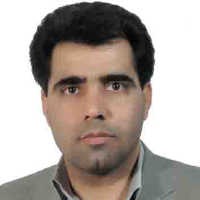Factors Affecting Patient’s Engagement with Physician in Angioplasty Patients: A Case Study
Patient engagement is a concept that has gained special importance in medical care today, and is considered as a valuable goal in patient care. With the evolution of modern health from a disease-centered model to a patient-centered model, patient interaction has played an important role in improving the health care processes. This study aims to identify the factors affecting the patient's interaction with the physician.
This is an applied study with a qualitative-descriptive method. First, the information of patients who underwent angioplasty in 2019 was extracted from the hospital information system. Then, in-depth interviews with patients were conducted using a semi-structured interview guide. In the next step, we analyzed the data using qualitative content analysis with MAXQDA.
After analyzing data, we were able to extract 1072 codes. Then, we categorized the codes into two sub-categories of supply side (physician) and demand side (patient). We identified 11 factors affecting supply-side interaction (information, physician behavior, education, access, cost, responsiveness, patient perception of physician expertise and skill, managerial weakness, facilities, trust, and satisfaction with physician), as well as seven factors on demand-side (personal problems, patient questioning spirit, response from other sources, financial problems, lack of knowledge and awareness, advice from others, and self-medication).
It is expected that the patient's interaction with his/her physician after angioplasty could accelerate the patient's recovery process, prevent possible complications, and reduce costs. Recognizing the effective factors and designing appropriate interventions on the supply and demand side that can lead to improving patient interactions with physicians, and pave the way for promoting community health.
-
Comparing the Role of Some Social Factors Affecting Health in Predicting the Lifestyle of the Elderly in Iran and Iraq
, Sadeq Mohsen Al- Gimavi, Akram Ghanbari-Moghaddam *, Ehsan Mosa-Farkhani
Journal Of Isfahan Medical School, -
Occupational Challenges of Intensive Care Nurses During the COVID-19 Pandemic: A Qualitative Study
Mahdi Yousefi, Zahra Ebrahimi, *, Somayeh Fazaeli
Journal of Caring Sciences, Jun 2023



